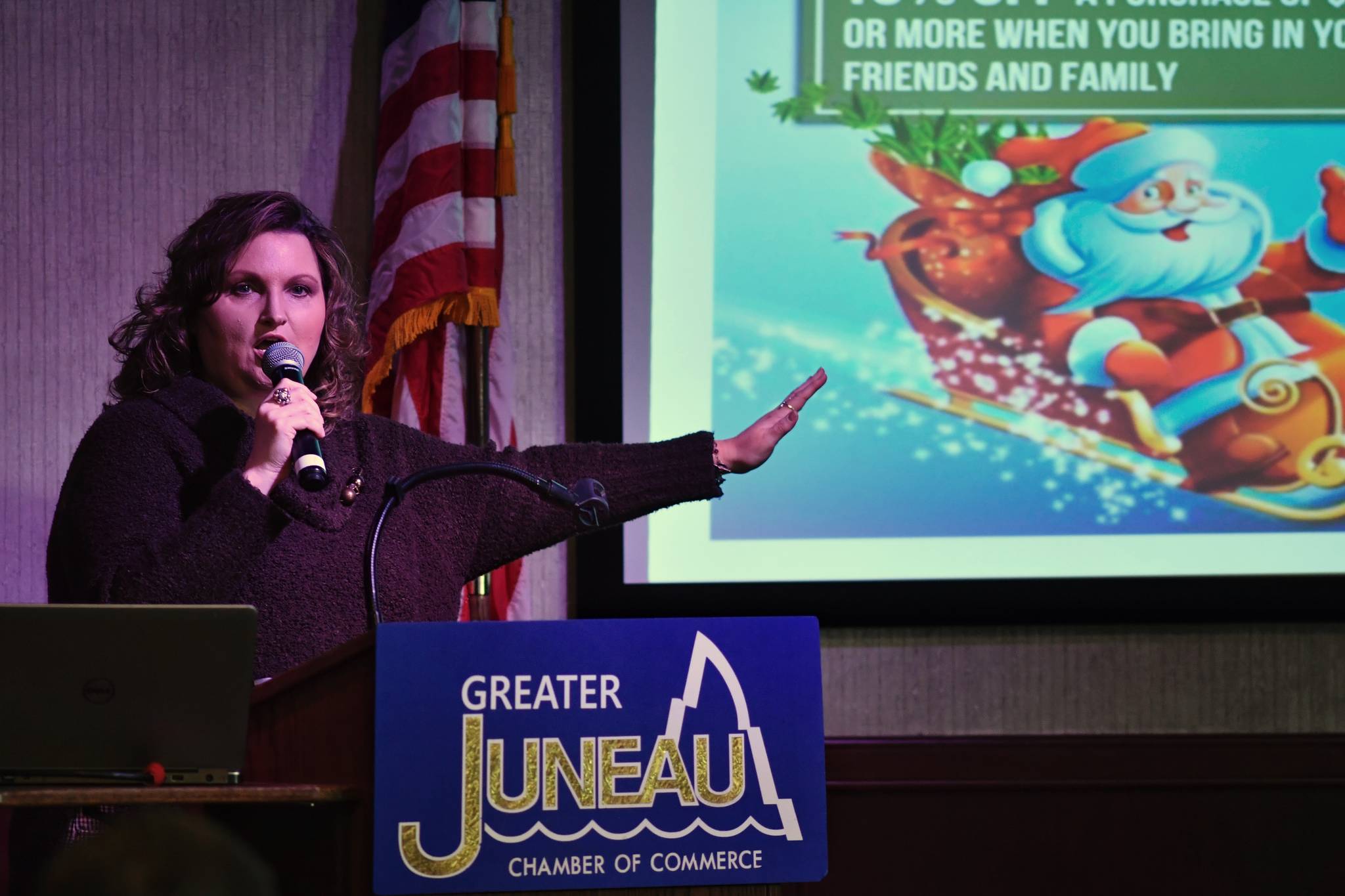A Colorado speaker presented the effects of marijuana to the Juneau Chamber of Commerce, but some industry professionals and chamber members weren’t convinced her data was relevant to Alaska.
Jo McGuire, a senior project manager at The Safety Specialist (a workplace drug-screening company), talked about societal impacts of marijuana use. Her main points were that marijuana use can impair workers, cartoon advertising can confuse children and that teen use and impaired driving go up in states with legalized marijuana.
Much of her data came from a Rocky Mountain High Intensity Drug Trafficking Area (RMHIDTA) report. The RMHIDTA organization is funded by the federal government and associated with the Drug Enforcement Agency.
Reports from this organization have been controversial. A 2016 Forbes article said: “RMHIDTA likes to present dramatic, seemingly scientific charts that make legalization look like a big mistake. The difficulties of interpreting the data presented in the charts are usually relegated to a footnote, assuming they are mentioned at all.”
Lacy Wilcox, a board member of the Alaska Marijuana Industry Association, said after the presentation that she didn’t think the data was relevant to Alaska.
“When you do an Alaska circuit, you would think you would at least put some Alaska specific information in your slide pack, such as, ‘You guys did some things right. Your regulations don’t allow for products that appeal to children or advertising that we’re prohibited from doing,’” Wilcox said. “A respectful public speaker would have come to the region that they’re in and said here’s some things you’ve done right and here’s some things you could do better.”
One topic McGuire and Wilcox agreed on was the problem of ‘weed refugees.’ McGuire said in her presentation that there are many homeless people in Colorado who left their home communities in other states to be able to smoke marijuana legally in Colorado.
“I couldn’t blame a person for doing that,” Wilcox said. “If they’re struggling because the economics of the city don’t allow for them to be there —there’s no jobs, there’s no housing —that’s a problem. They should be working on that. We’re not having that problem here.”
There are 1,004 pot shops in Denver, McGuire said in her presentation, comparing that to 208 McDonald’s restaurants and 392 Starbucks shops. But that comparison is a bit misleading since the 1,004 number represents an entire industry and McDonald’s is just one company within an industry. Wilcox noted the numbers might look different if you compared all the pot shops in Denver to all of the fast food restaurants in Denver.
“We heeded the warning of Colorado and the mistakes, and we did a better job,” Wilcox said.
• Contact reporter Mollie Barnes at mbarnes@juneauempire.com

